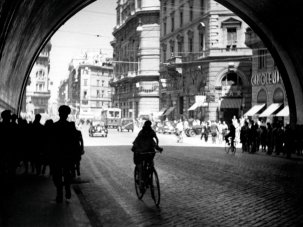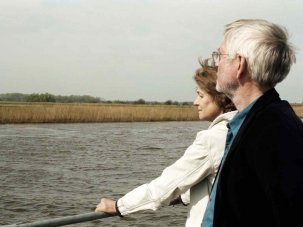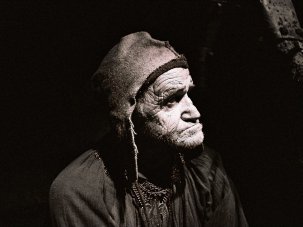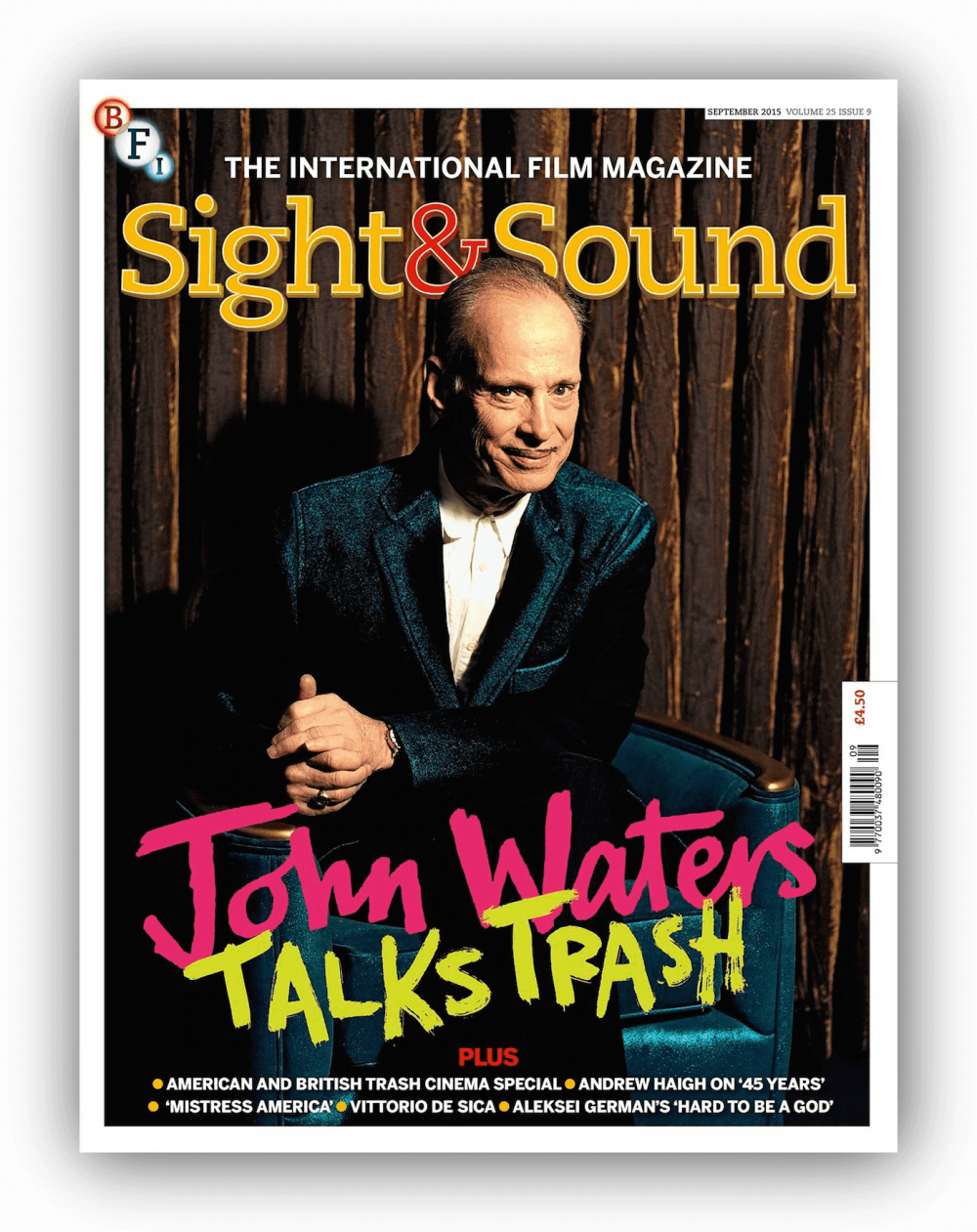
Our September issue slips the bonds of respectability and good taste to embrace the down, dirty and very often dubious pleasures of Trash cinema. On the eve of a full retrospective of John Waters’s films at BFI Southbank, Kim Morgan talks at length to the ‘Pope of Trash’ himself, who since his cheerfully outrageous debut feature Mondo Trasho in 1969 has provided a beacon for the maladjusted and misunderstood – and been a bête noire for puritans. But while Waters’s upcoming retrospective might seem to grant a veneer of later-life respectability, don’t imagine he’s lost any of his mischievous ability to shock and offend.
Posted to subscribers and available digitally 31 July
→ Buy a single print issue
→ Access the digital edition
→
On UK newsstands 4 August
Waters is on typically hilarious, fascinating, unguarded and generous form as he looks back over his life, his films and his formative obsessions, whether reminiscing about dropping acid with Divine and going to see Ingmar Bergman films, outsmarting the disapproving Nuns at his Sunday school, skipping school to see Ike and Tina Turner, or his ongoing battles with the censors.
We stay in Waters’s world with a survey of the inglorious history of American Trash cinema. From Ed Wood to Herschell Gordon Lewis, via Paul Morrissey and Doris Wishman, our writer Tim Lucas picks out some of the key filmmakers and titles from a subgenre whose films are shot largely without technical skill and feature performers without conventional talent, but which offer a gleeful celebration of everything that might appal a mainstream audience.
Britain may never have had a truly alternative trash cinema culture like America’s, but its cheap populist films have still captured the genre’s naive energy, dubious tastes and frank eroticism. I.Q. Hunter uncovers a British cinema tradition that’s a long way from costume drama respectability.
Andrew Haigh is one of the most exciting British directors to have emerged in recent years, and this month 45 Years, his superb follow-up to Weekend, reaches British screens. Nick James talks to Haigh about the film, whose story sees the ghosts of the past come back to haunt a long-married couple (played by Charlotte Rampling and Tom Courtenay) after the body of the husband’s former girlfriend is discovered in a melting glacier.
In an altogether different stylistic register is the late Russian director Aleksei German’s immersive, apocalyptic vision of life on a distant planet, Hard to Be a God, which took German almost 50 years to bring to fruition and represents the logical culmination of a brilliant, wayward career. Michael Brooke celebrates the life and unique work of a genuine maverick.
The Italian director and actor Vittorio De Sica is another figure with a well-earned reputation as a maverick, especially for his contributions to the first flowering of neorealism. But while De Sica’s reputation might rest on his classic tales of poverty and struggle in post-war Italy, such as Bicycle Thieves and Umberto D., in a versatile career that spanned more than 30 films as director and 150 as an actor, there is so much more that deserves our attention. As a retrospective comes to BFI Southbank in September, Pasquale Iannone explores the vast and varied output of a giant of Italian cinema.
Elsewhere in the issue, we report from Il Cinema Ritrovato, the annual festival of archive cinema, and our Wide Angle section features a profile of the work of Joseph Cornell, the prolific collage artist, diarist and maker of ‘shadow boxes’. Wide Angle also has a celebration of Maurice Tourneur’s silent work, and a report from this year’s FID Marseille festival.
Our reviews section covers every new film released this month, including Spanish director Alberto Rodriguez’s brilliant, shadowy thriller Marshland and Noah Baumbach’s modern screwball Mistress America, starring Greta Gerwig.
Our pick of the latest film books includes reviews of a labour-of-love tome on Jesus Franco, a survey of Scottish cinema and two new titles to add to the shelf of books on Orson Welles, while our DVD and Blu-ray section includes reviews of Marco Ferreri’s infamous La Grande Bouffe, as well as extended review of James B. Harris’s Some Call it Loving.
Closing out, our Endings column focuses on the unforgettable denouement to the classic noir Nightmare Alley.
All this and more…
Features
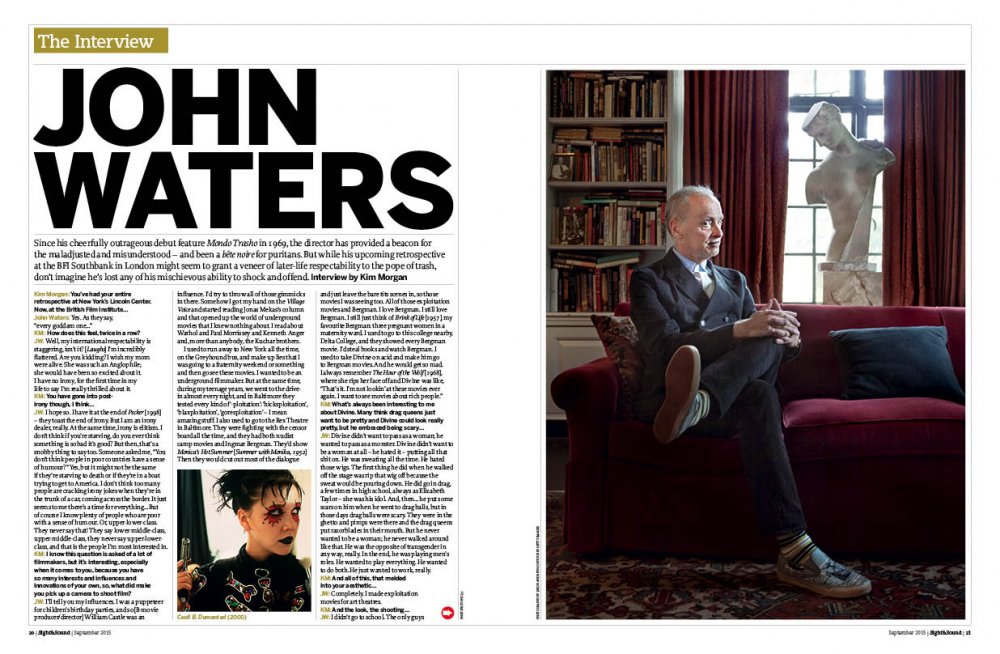
Sight & Sound interview: John Waters
For almost half a century John Waters has provided a beacon for the maladjusted and misunderstood – and been a bête noire for puritans. But while the BFI’s forthcoming retrospective in London might seem to grant a veneer of later-life respectability to the pope of trash, don’t imagine he’s lost any of his mischievous ability to shock and offend. Interview by Kim Morgan.
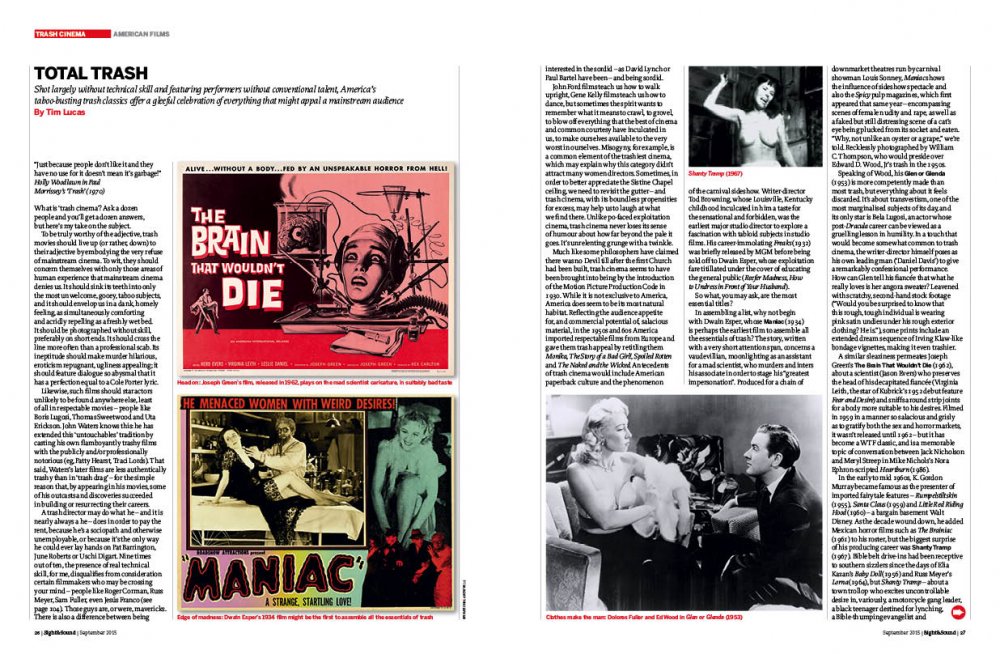
Total Trash
America’s taboo-busting trash classics offer a gleeful celebration of everything that might appal a mainstream audience. By Tim Lucas PLUS I.Q. Hunter on the naive energy of British cinema’s own cheap populism.
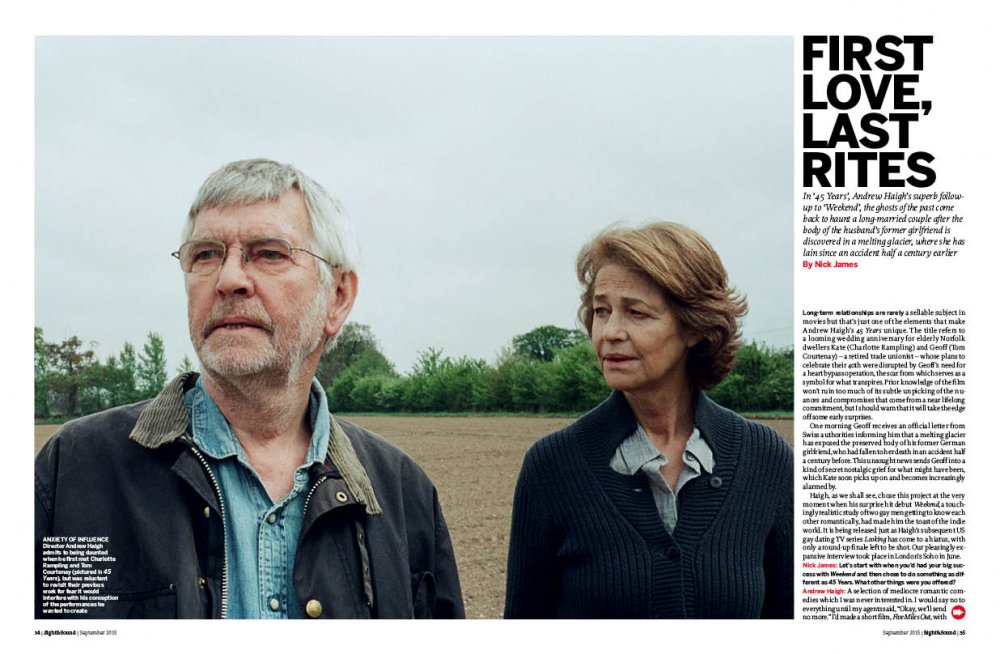
First love, last rites
In 45 Years, Andrew Haigh’s superb follow-up to Weekend, the ghosts of the past come back to haunt a long-married couple after the body of the husband’s former girlfriend is discovered in a melting glacier. Nick James talks to the director.
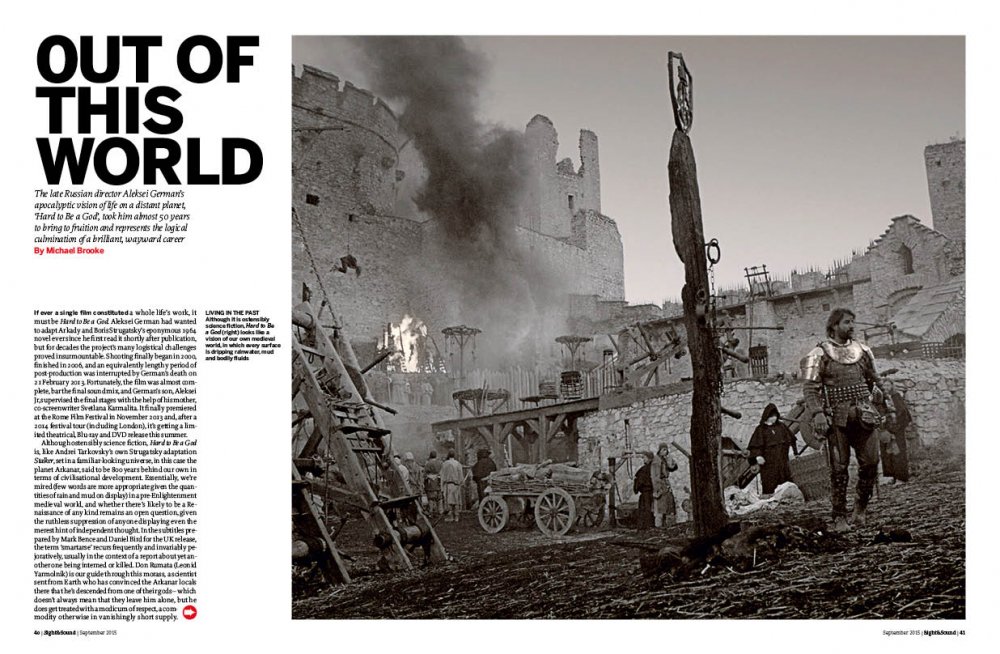
Out of this world
Aleksei German’s apocalyptic vision of life on a distant planet, Hard to Be a God, took him almost 50 years to make and is the logical culmination of a brilliant career. By Michael Brooke.
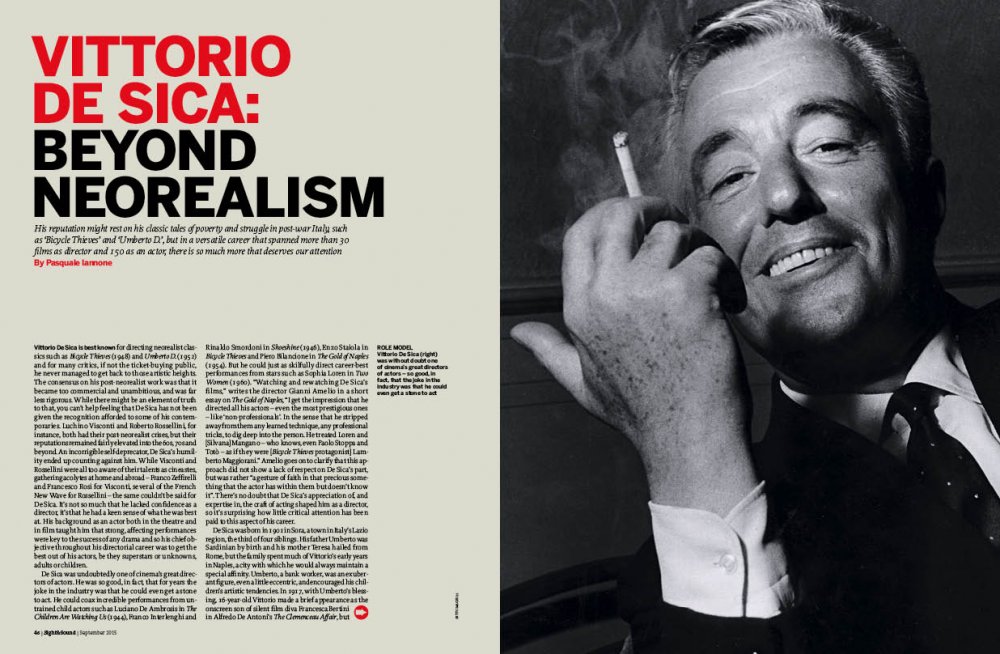
Vittorio De Sica: Beyond Neorealism
Vittorio De Sica’s reputation rests on classic tales of poverty and struggle in post-war Italy, such as Bicycle Thieves, but in a career that spanned more than 30 films as director and 150 as an actor, there is so much more that deserves our attention. By Pasquale Iannone.
Regulars
Editorial
A certain tendency in British cinema.
Rushes
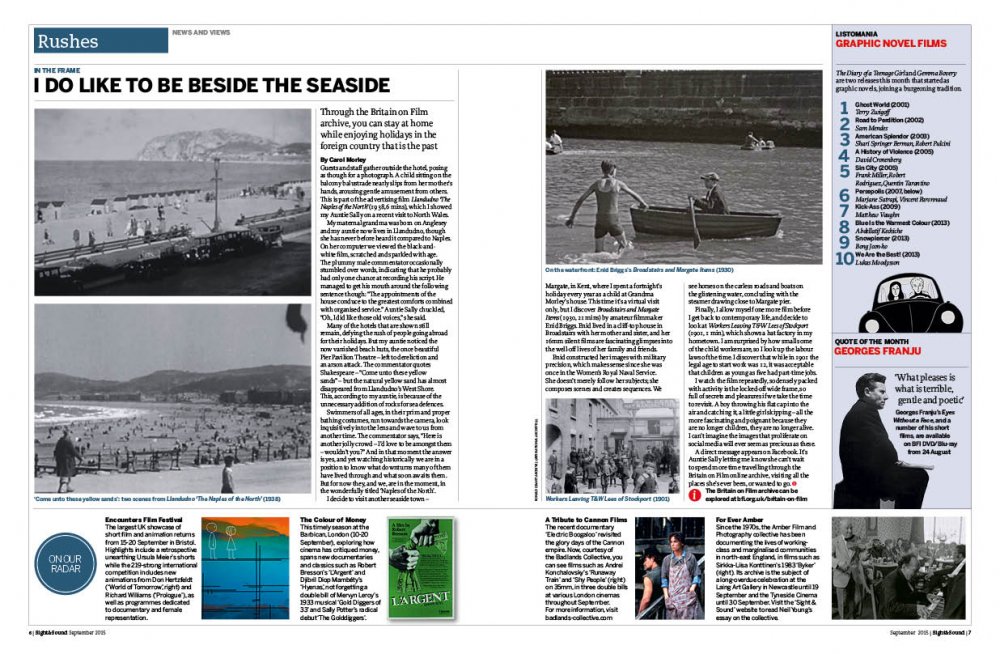
Our Rushes section
In the frame: I do like to be beside the seaside
Carol Morley takes a break in the Britain on Film archive.
Listomania: Graphic novel films
Object lesson: Hearing aids
Headphones can isolate a character in a film, but they can also help create a special intimacy between them and the audience in the stalls. By Hannah McGill.
The five key…: Neo screwballs
As Mistress America hits the big screen, we celebrate other descendants of the high-spirited, fast-talking comedies of the 1930s. By Adam Nayman.
Interview: Altered states
A practical decision to film for just one day a week over a year created the unusual form for Sophie Hyde’s coming-of-age drama 52 Tuesdays. Interview by Pasquale Iannone.
Dispatches: Scissor sisters: part 2
How can we explain the prevalence of female film editors in what has always been thought of, regrettably, as a boys’ club? By Mark Cousins.
Festivals
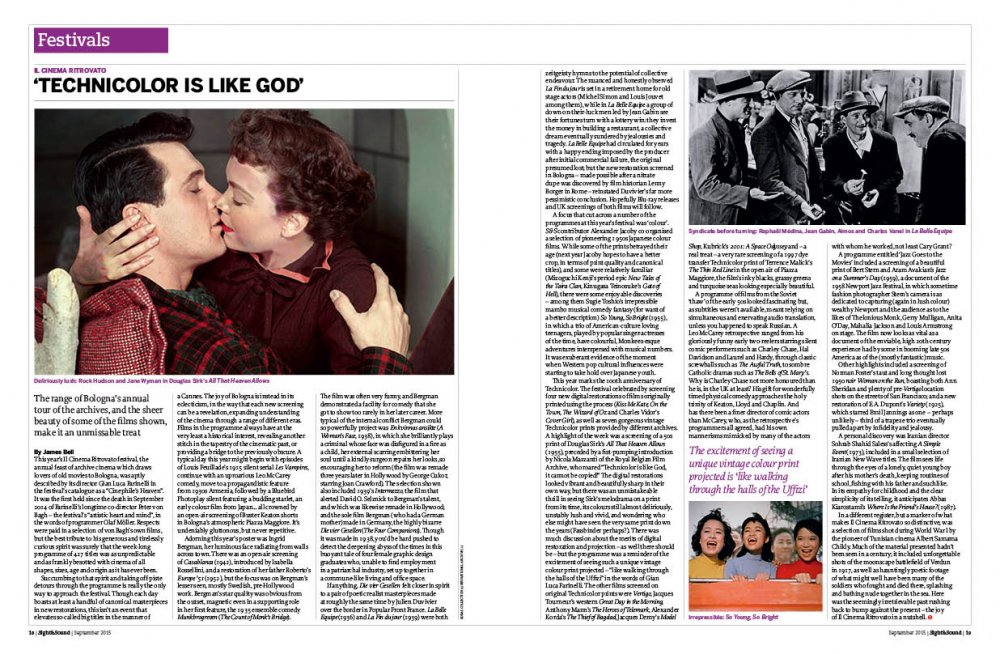
Our Festivals section
‘Technicolor is like God’: Il cinema ritrovata
The range of Bologna’s annual tour of the archives, and the sheer beauty of some of the films shown, make it an unmissable treat, finds James Bell.
The industry
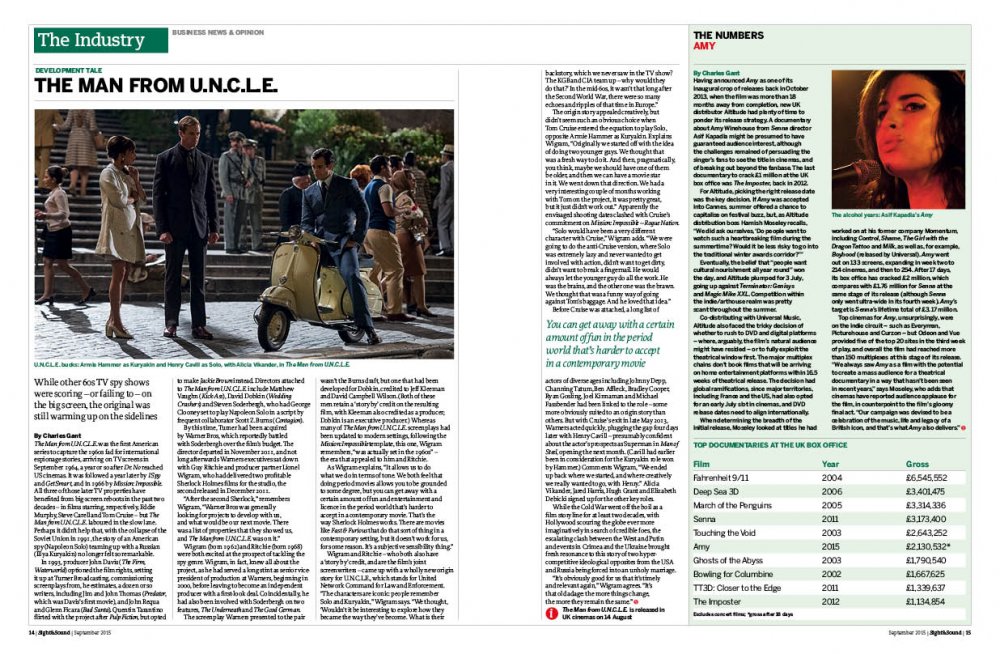
Our Industry section
Development tale: The Man from U.N.C.L.E
While other 60s TV spy shows were scoring – or failing to – on the big screen, the original was still warming up on the sidelines. By Charles Gant.
The numbers: Amy
Brewster: Box office actually
Not so long ago, the British romcom was big business. But after a few lean years, can the British film industry find romance again? By Ben Roberts.
Wide angle
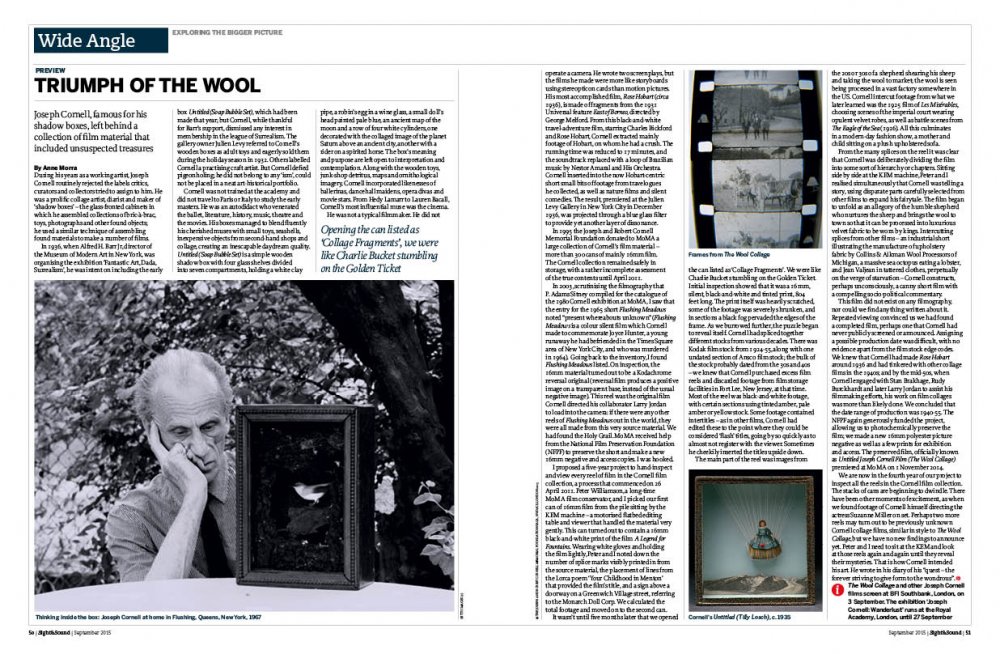
Our Wide Angle section
Profile: Triumph of the wool
Joseph Cornell, famous for his shadow boxes, left behind a collection of film material that included unsuspected treasures. By Anne Morra.
Soundings: Running with the heard
For once, the focus was on the sounds rather than the pictures, at the Listening Cinematically conference. By Robert Hanks.
Primal screen: The world of silent cinema
A century after one of his best films premiered to convicts, the director Maurice Tourneur is criminally neglected By Christene Leteux.
Festival: Armies in the shadows
The Greek referendum and Latin American dictatorships cast long shadows at this year’s edition of FIDMarseille. By Neil Young.
Profile: The Excavator
Intellectually sophisticated, moving between documentary and fiction, the films of Louis Henderson grapple with big ideas. By Sukhdev Sandhu.
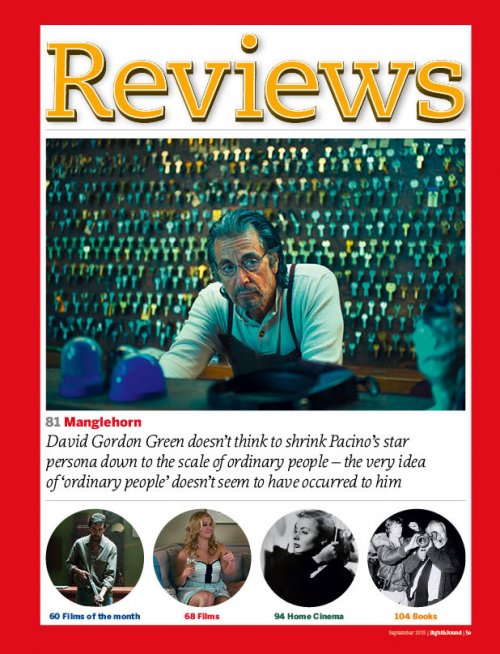
Our Reviews section
Reviews
Films of the month
Marshland
Me and Earl and the Dying Girl
Mistress America
The Wolfpack
plus reviews of
Ant-Man
Buttercup Bill
Cartel Land
Closed Curtain
The Cobbler
The Confessions of Thomas Quick
The Diary of a Teenage Girl
Dope
The Ecstasy of Wilko Johnson
52 Tuesdays
45 Years
The Gallows
Gemma Bovery
Good People
Hard to Be a God
Housebound
Looking for Love
Magic Mike XXL
Manglehorn
Max
No Escape
North v South
Paper Towns
Precinct Seven Five
President
Pressure
The Second Mother
Self/less
Southpaw
Strange Magic
Terminator Genisys
Theeb
Trainwreck
True Story
DVD features
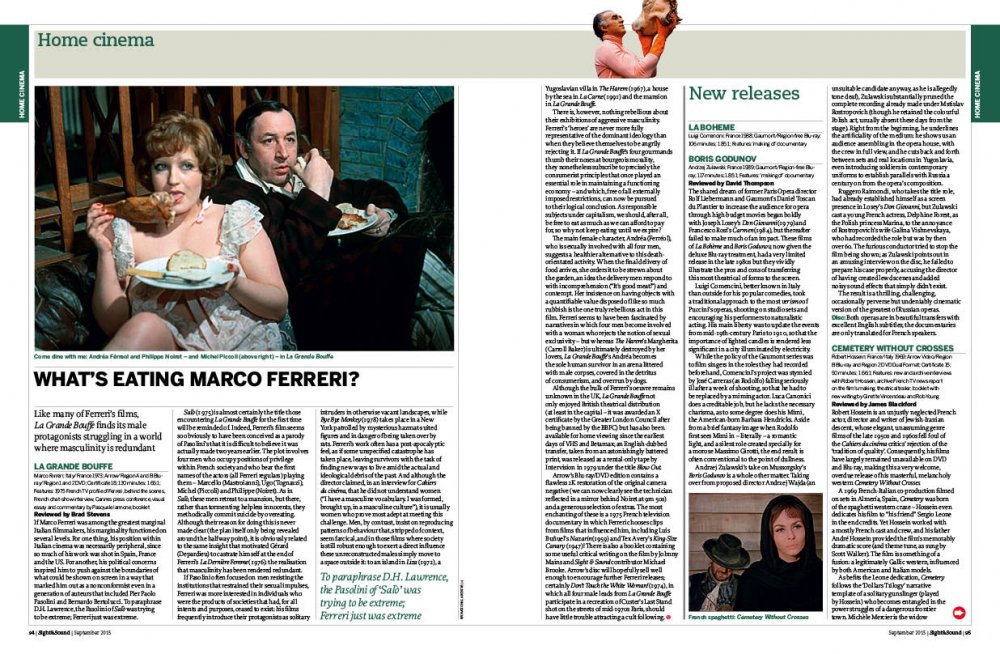
Our Home Cinema section
What’s eating Marco Ferreri?
Like many of Ferreri’s films, La Grande Bouffe finds its male protagonists struggling in a world where masculinity is redundant. By Brad Stevens.
Rediscovery: Some Call It Loving
Nick Pinkerton reappraises a subversive 70s retelling of the Sleeping Beauty story which becomes a melancholy meditation on lost innocence.
Lost and found: Gwen, the Book of Sand
Full of dreamlike fancy, Jean-François Laguionie’s auteur animation favours philosophy and imagination over incident and plot. By Alex Dudok de Wit.
plus reviews of
Operas from Gaumont
Cemetery Without Crosses
Contamination
Hue and Cry
The Ang Lee Trilogy
Man with a Movie Camera and other Vertov films
Post-war British thrillers
The Roberto Rossellini Ingrid Bergman Collection
Stalag 17
State of Grace
Story of My Death
Television
The Avengers: Series 5
The Game
Jonathan Strange & Mr Norrell
Quatermass
Books
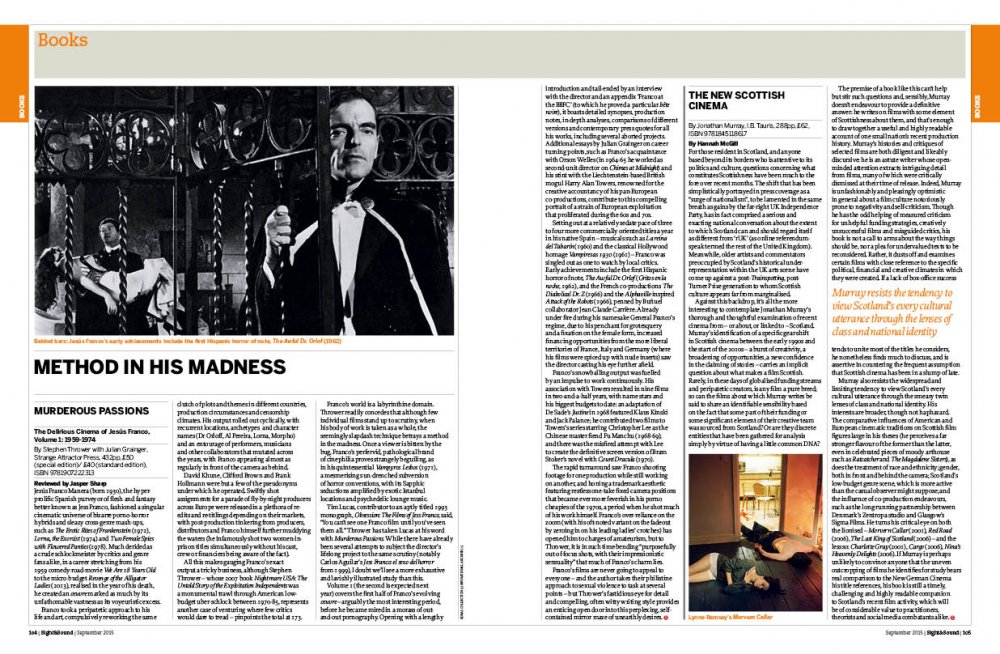
Our Books section
The Delirious Cinema of Jesús Franco, Volume 1: 1959-1974 by Stephen Thrower with Julian Grainger, reviewed by Jasper Sharp.
The New Scottish Cinema by Jonathan Murray, reviewed by Hannah McGill.
The edge is where the centre is: David Rudkin and Penda’s Fen edited by Gareth Evans, Will Fowler and Sukhdev Sandhu, reviewed by Nick James.
From Darkness into Light: Perspectives on Film Preservation and Restoration edited by Rajesh Devra, reviewed by Michael Ewins.
Orson Welles’s Last Movie: The Making of the Other Side of the Wind by Josh Karp and Orson Welles: Power, Heart, and Soul by F.X. Feeney, reviewed by Nick Pinkerton.
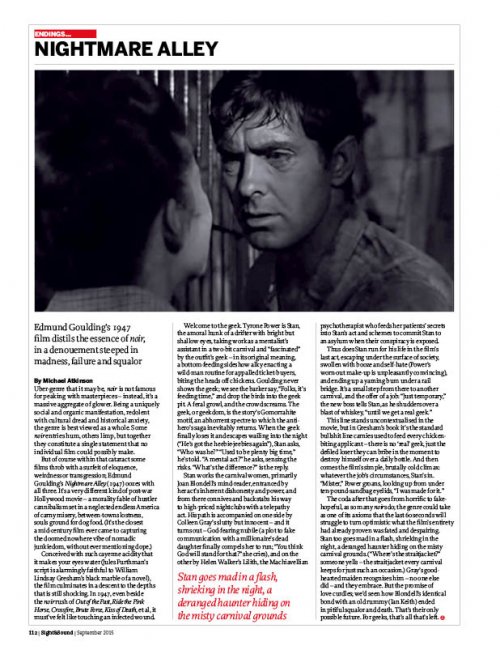
Our Endings section
Endings
Nightmare Alley
Edmund Goulding’s 1947 film distils the essence of noir, in a denouement steeped in madness, failure and squalor. By Michael Atkinson.
Further reading
-
The Digital Edition and Archive quick link
Log in here to your digital edition and archive subscription, take a look at the packages on offer and buy a subscription.




